Strengthened Local Capacity Improves Nepal’s Health Delivery
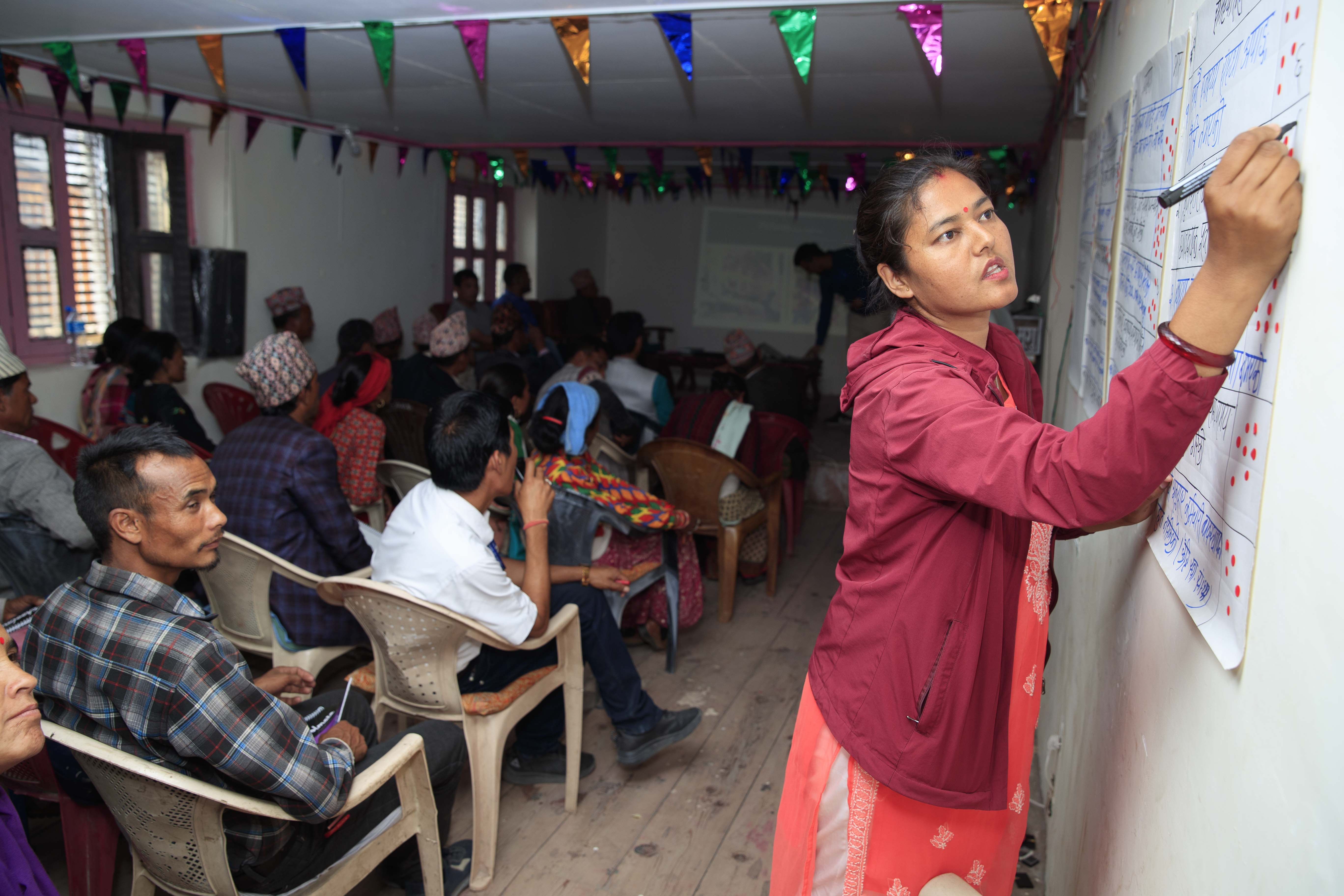

A new day has dawned for healthcare in Jumla, Nepal. The community has expanded the number of health facilities. It boasts mobile health camps, an ambulance, and home health check-ups for over 70 people a month. “Now we are providing free services to pregnant women, people with disabilities, and elderly people,” says the proud deputy municipal chairperson.
Jumla isn’t alone. In Rukum West, representatives and health management committees have completed health-related training. “By doing that, they become sensitive to things they didn’t understand about health before,” says the local health section chief. “That is why their attachment to health is increasing.”
And in Jajarkot, “the priority of the health sector has definitely improved,” says the deputy mayor. “If we don’t have any medicine and if people are continuously ill with some disease or condition, then what is the value of other physical development?”
Two factors have helped make healthcare a top priority for communities in Nepal. One is Nepal’s transition to federalism in 2017, which gave municipal officials responsibility for health. “This is a gift of federalism,” says the deputy municipal chairperson of Jajarkot.
The other is the work of USAID's Abt-led Strengthening Systems for Better Health (SSBH) Activity. To learn more about administering health systems and what would be effective and impactful, elected municipal officials and municipal health staff in Karnali and Lumbini Provinces participated in three rounds of consultative assessments led by SSBH between 2018 and 2022. They enabled local officials to set priorities and channel funding where the needs were greatest and take practical steps to address them. The result was real world impact: improved healthcare delivery.
Over the life of the project, SSBH conducted four Health Systems and Capacity Assessments to:
- Understand the capacity and readiness of municipalities to plan, implement, and monitor health service delivery
- Identify strengths, weaknesses, gaps, and opportunities
- Inform development of customized technical assistance plans
- Monitor, measure, and report on changes in health systems and municipal capacity
- Review progress with municipal health section chiefs and staff, elected officials, and chief administrative officers
- Update the technical assistance plans for each municipality
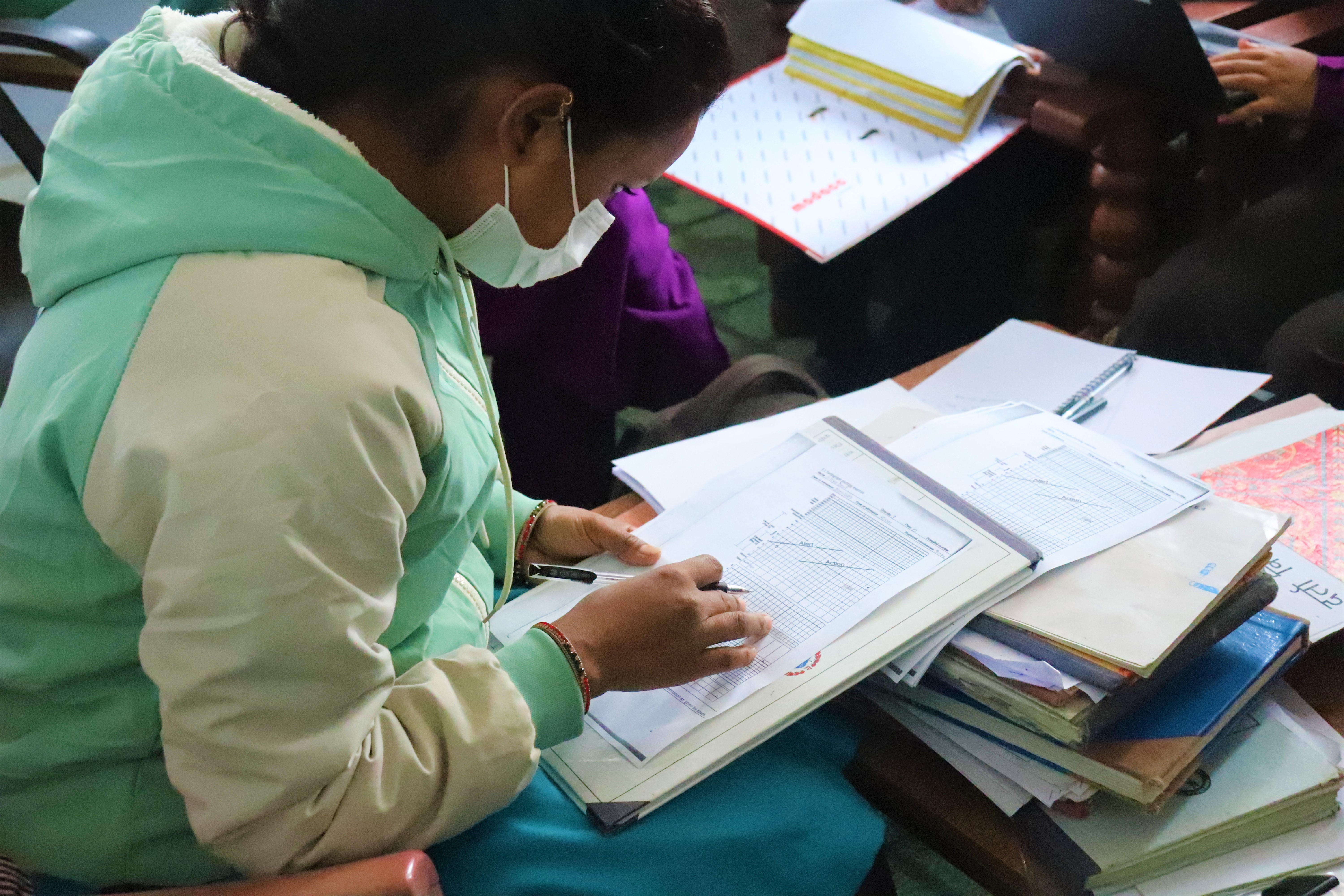

Assessment Team Information Gathering
A team of trained SSBH staff performed the first assessment between December 2018 and July and the second assessment between April and July 2021. The assessment team interviewed elected officials, including mayors, deputy mayors, chairpersons, and other senior staff at municipal level to collect the necessary information about eight areas:
- Legal and policy frameworks
- Institutional arrangements
- Planning, budgeting, and budget execution
- Human resources mobilization and management
- Information management and review system
- Essential medicines logistics and supply
- Monitoring, evaluation, and supervision
- Governance and other systems.
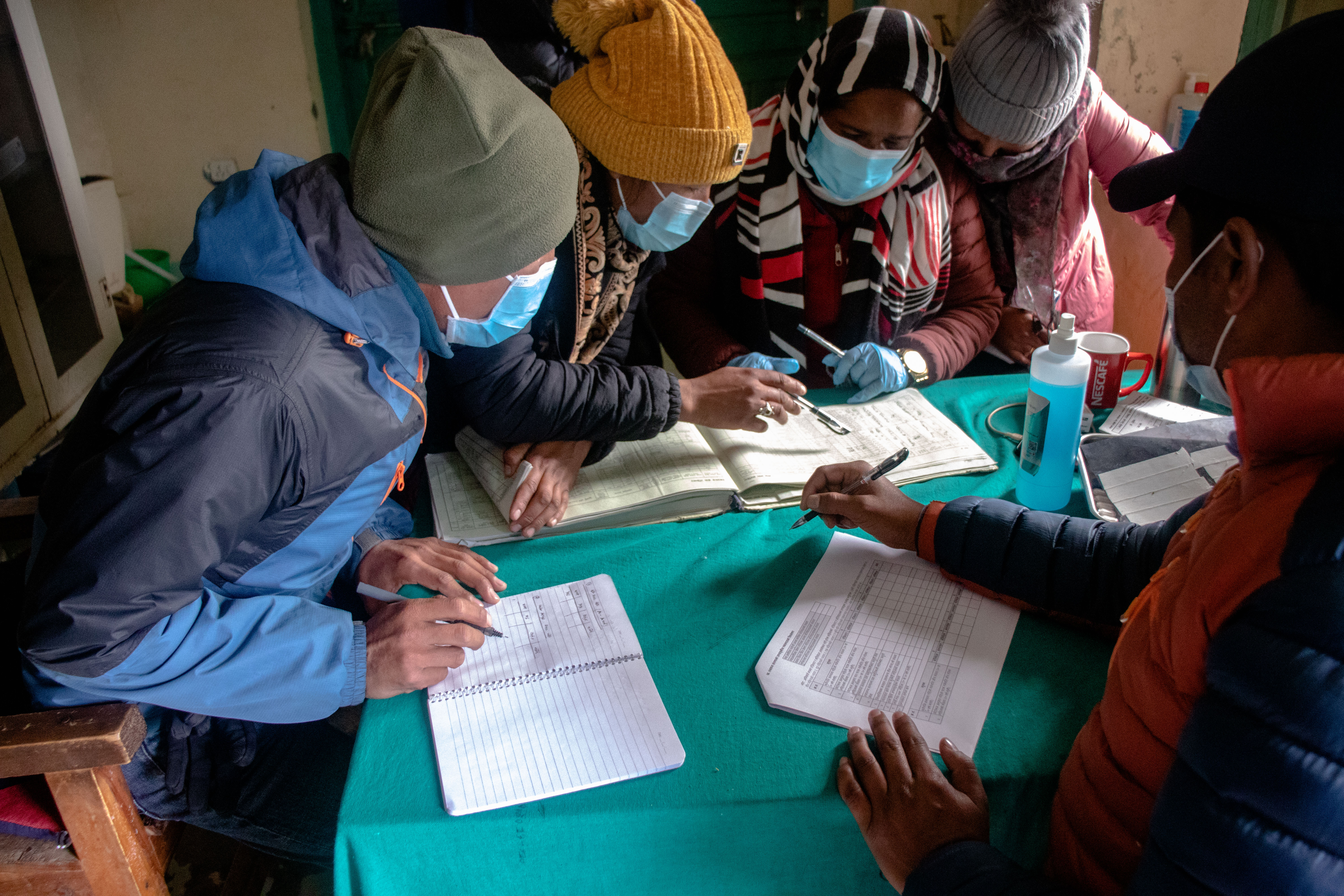

Local Commitment Enabled Rapid Improvement in Health Outcomes
The assessments showed considerable progress. The average overall score was about 46 in 2018 and rose to 73 two years later, with 100 out of 105 municipalities showing improvement. Municipalities improved their average scores in all eight areas. The biggest gains were in institutional arrangements and information management and review system. “[One major success is] the collaboration between different committees and sub-committees in the municipality,” says a sub-health coordinator in Mugu. “As an example, we have been able to successfully manage the COVID-19 control and response activities in the municipality.... The support of SSBH was significant in this success.”
The smallest increases were in legal and policy frameworks and monitoring, evaluation, and supervision. But even those areas showed progress, suggesting that municipalities tried to address the gaps in these areas.
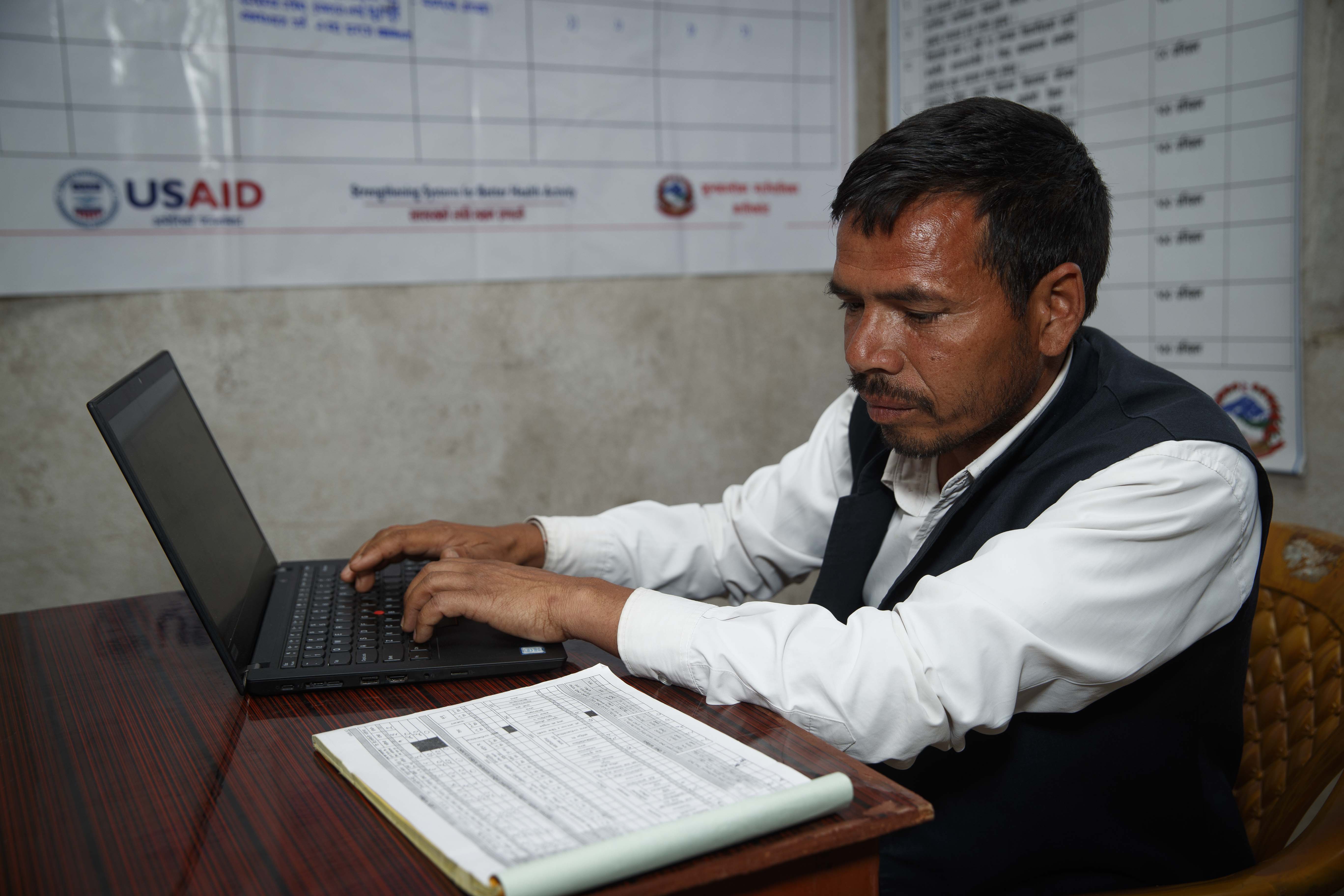

SSBH Activities Contributed to Health System Improvements
The biggest improvement came in the availability of functional software to manage accounting and budgeting systems and the presence of a municipal health committee to govern health systems. Other areas that made advances were:
- Improved skills of responsible officials to manage logistics and supply
- Adoption of standard quality improvement processes and tools
- Presence of a legal framework to manage an information system at the municipal level
SSBH helped produce these changes by outlining oversight roles and responsibilities for municipal health committees, on-site coaching for health workers on electronic logistics management information systems (eLMIS), and helping health facilities implement quality improvement processes.
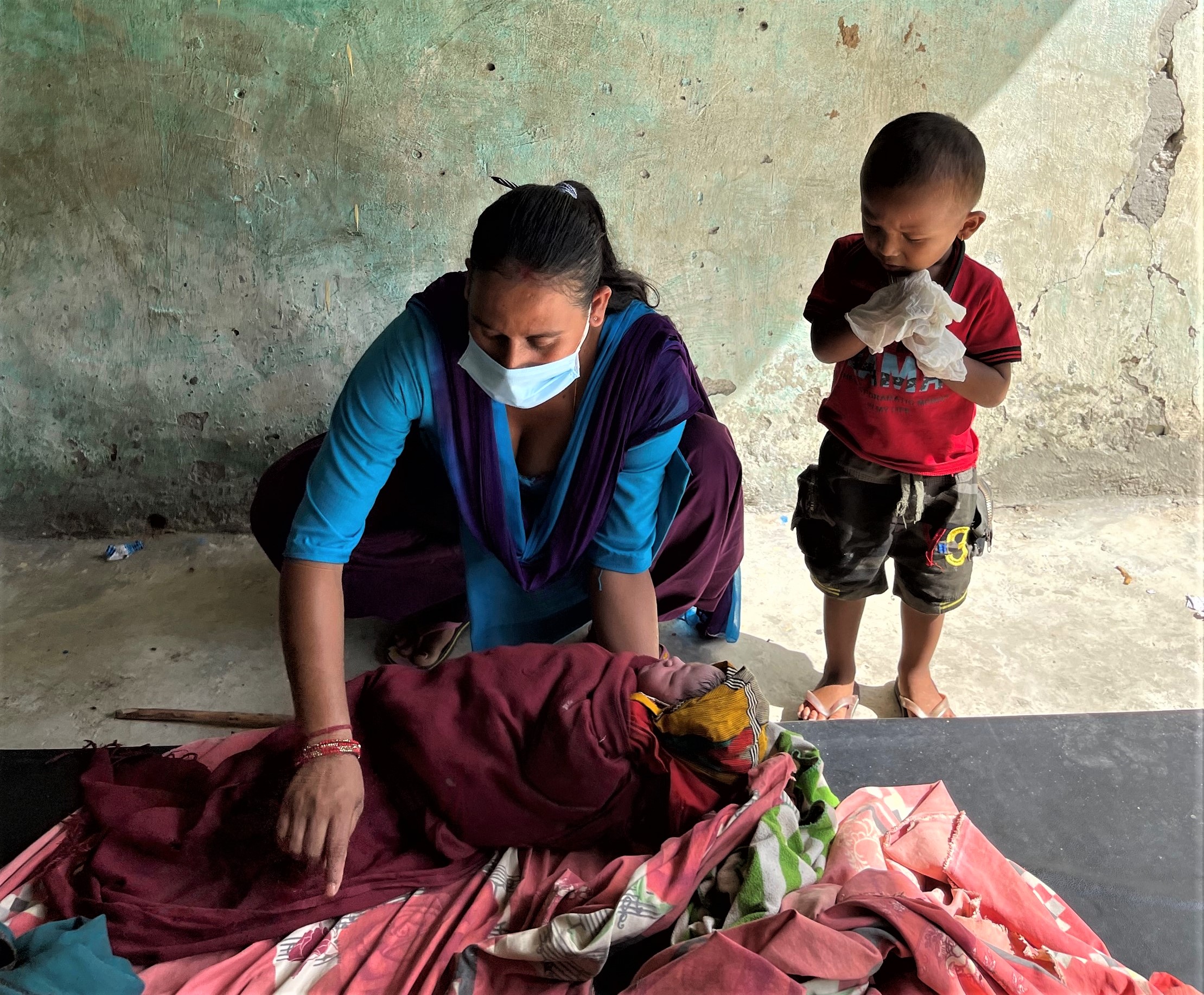

SSBH Training Helped Strengthen Health Worker Capacity
Beyond technical assistance, SSBH strengthened the capacity of health workers to deliver health services. The Activity provided skilled birth attendant training, maternal and neonatal health updates, clinical coaching and mentoring to health workers, and training on family planning and community-based integrated management of neonatal and childhood illnesses.
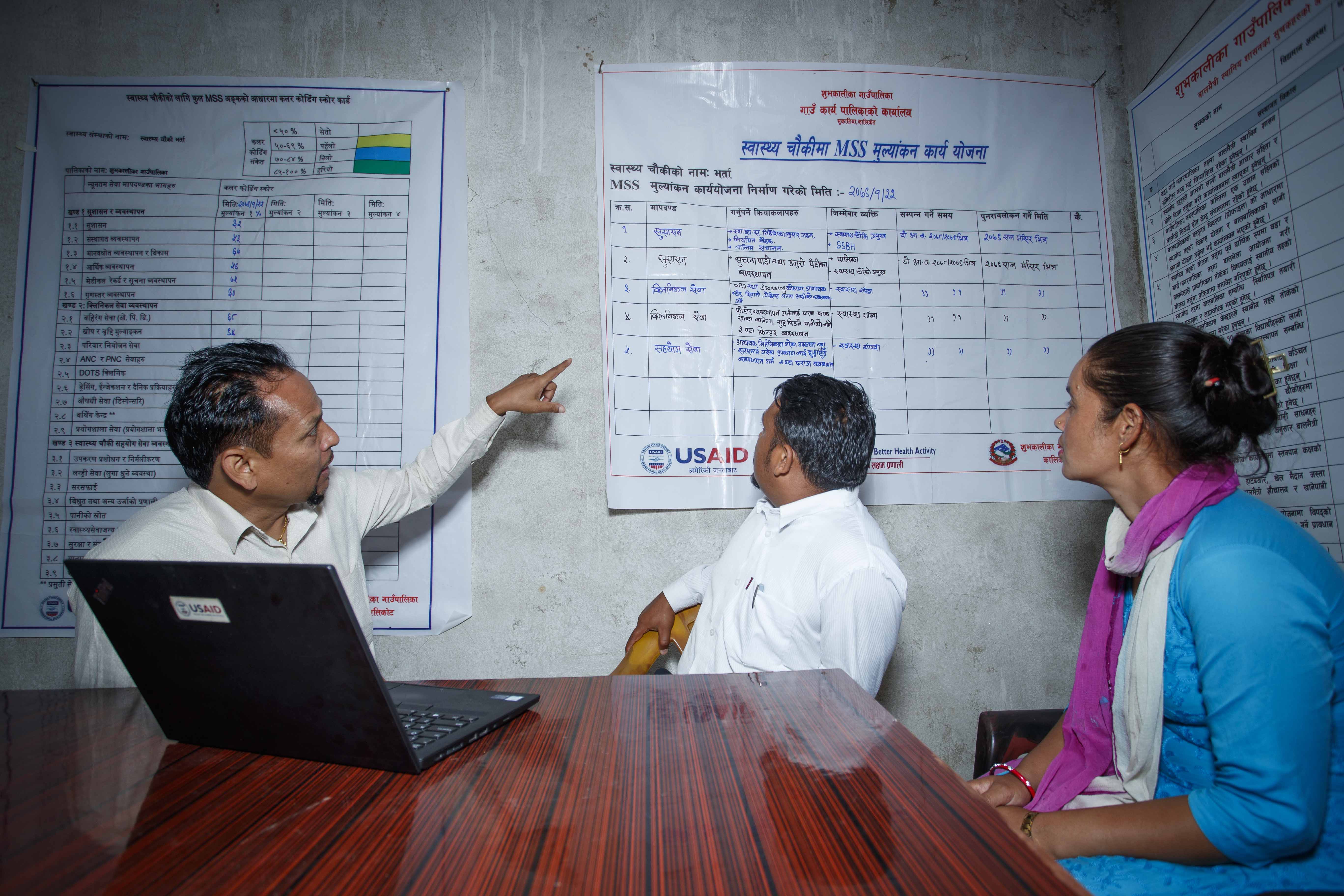

Rukum West Municipality Assessment Led to Healthcare Delivery Improvements
The Musikot municipality, Rukum West, showed how a customed technical assistance approach, with an assessment, improvement plan, support, and evaluation components, can help produce major improvements. Institutional deliveries of newborns rose from 37 percent to 78 percent. Initially, staff weren’t confident about using DHIS2 or eLMIS, but by the second assessment, health facilities were using both systems and reported 92 percent on time data collection. And stockouts of essential medicines declined. “Four to five years ago, I did not have the required technical skills,” admits the health section chief of Jajarkot. “Now I know a lot about recording and reporting processes. I use DHIS2 to enter data in eLMIS. I have also learned about planning and budgeting…I see a lot of growth in me.”


The results of the Activity make clear that a participatory approach combined with comprehensive assessment tools helps assess the local health system’s status. And clear implementation plans and associated technical assistance can promote health system improvements.
This approach isn’t the only one that works. Peer learning in the right circumstances also does. But SSBH’s strategy shows that it’s a viable option for technical experts and municipal officials to collaborate on strengthening local government capacity to achieve better health delivery, responsiveness, and resilience
Read More
Health Systems Strengthening in Asia & Pacific

USAID Catalytic Action through Localized Policy Solutions (CATALYST)
USAID CATALYST is a global program that helps countries build policy and institutional frameworks that enable greater investment in sustainability and resilience across sectors.
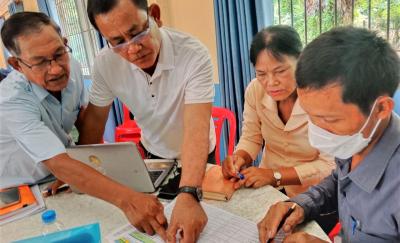
Cambodia’s Social Protection Program Enters the Digital Age
Abt played a key role in helping Cambodia create a network with interoperable data management systems to improve the impact of its social protection programs.
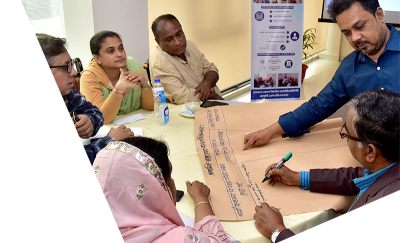
Health Systems Research (HSR) 2024
Abt Global is exhibiting and presenting at Health Systems Research (HSR) in Nagasaki, Japan in November 2024.

Sharing Lessons to End the HIV Epidemic in the U.S. and Abroad
This white paper explains how bi-directional learning from the U.S.-focused RWHAP program and the international PEPFAR program can help end the HIV epidemic.
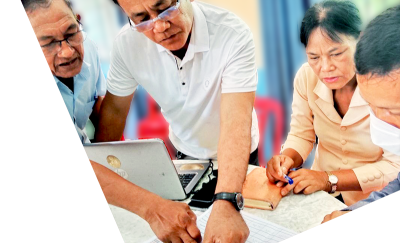
The Future of Health Systems: Advancing Health Systems Strengthening: Metrics, Learnings, and Future Directions
This Future of Health Systems series webinar focuses on the evolving health systems landscape and how MEL strategies are indispensable for improving performance.
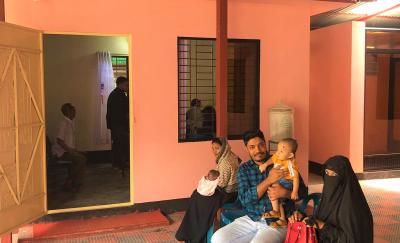
Funding Model Helps Bangladesh Expand Primary Health Care
Some municipalities fund primary health care services in urban areas of Bangladesh.
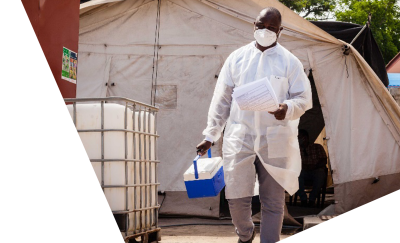
Navigating Tomorrow's Challenges: Advancing Health Security with Digital Innovation
On May 9, 2024, Abt Global, USAID, Intellisoft, and Gryphon Scientific met to explore the next generation of digital solutions for strengthening global health security.

The Future of Health Systems: Investing in Primary Health Care Workers - A Call to Action
On February 29, 2024, join us for an insightful discussion about how frontline health workers are critical to health systems.

What is One Health? A Frontline Defense Against Zoonotic Diseases
A One Health approach, which includes human, animal, and environmental health, is critical for fighting diseases passed between animals and humans.
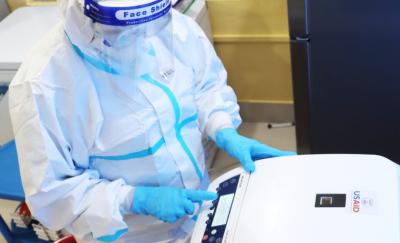
SSBH Protocols Saved Lives During Nepal’s COVID-19 Epidemic
USAID’s Abt-led Strengthening Systems for Better Health Activity helped Nepal cope with COVID-19 through the Health Emergency Response program.

Spotlight On: Advancing Fiscal Transparency & Improving Service Delivery Through PFM Support
Abt helps governments around the world enable sustainable economic growth, advance fiscal transparency and accountability, and improve service delivery.

Spotlight On: Solutions for Malaria, Vector-Borne Diseases, and Novel Pathogens
Abt Global is the world’s largest provider of interventions to track and control malaria, protecting millions of people annually in nearly 30 countries.
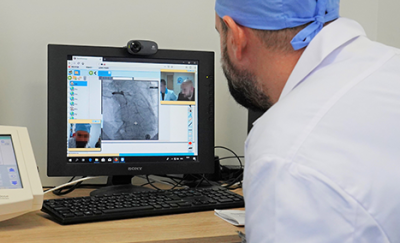
Telemedicine: A Lifeline for Ukraine's Health System Amidst War
The Abt-led USAID Local Health System Sustainability Project is helping Ukraine adopt telemedicine to connect people to healthcare during the war with Russia.

Trust and Localization: The Missing Tools in Pandemic Preparedness and Response
What is humanity’s best defense against a pandemic or other major threat? You’d be partially right to think: high-tech equipment in gleaming new health facilities, a computer farm in the cloud to collect and share data, highly qualified clinical staff, vast sums for vaccine research and development, and expansive budgets funding expensive national public health systems.
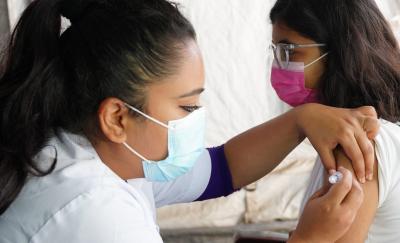
Reliability and Validity of an Innovative High Performing Healthcare System Assessment Tool
An innovative new tool that measures health systems performance and dimensions of universal health coverage (UHC) covered in-depth in BMC Health Services Research